 W
WJewish thought, also known as Judaic thought or Hebraic thought, is a field of Jewish studies that deals with the products of Jewish thought and culture throughout the ages, and their historical development. The field also deals with the connections, parallels, and influences, between Jewish ways of thought and world philosophy in general.
 W
WHochschule für die Wissenschaft des Judentums, or Higher Institute for Jewish Studies, was a rabbinical seminary established in Berlin in 1872 and closed down by the Nazi government of Germany in 1942. Upon the order of the government, the name was officially changed to Lehranstalt für die Wissenschaft des Judentums.
 W
WBiblical archaeology is an academic school and a subset of Biblical studies and Levantine archaeology. Biblical archaeology studies archaeological sites from the Ancient Near East and especially the Holy Land, from biblical times.
 W
WChristian M. M. Brady is an American scholar who specializes in biblical literature, rabbinic literature, and the targumim, especially Targum Lamentations and Targum Ruth. He is the inaugural Dean of the Lewis Honors College and Professor of Modern and Classical Languages, Literatures, and Cultures at the University of Kentucky (2017). In September of 2020 he was named interim dean of the College of Arts & Sciences at the University of Kentucky. He was Dean of the Schreyer Honors College from 2006-2016. He was formerly Associate Professor of Classical Studies and Jewish Studies at Tulane University. His administrative roles at Tulane included, Associate Director of the Jewish Studies Program (1997-1998), Director of the Jewish Studies Program (1998-2003), Associate Director of the Honors Program (2003-2004), and Director of the Honors Program (2004–2006).
 W
WJohannes Buxtorf was a celebrated Hebraist, member of a family of Orientalists; professor of Hebrew for thirty-nine years at Basel and was known by the title, "Master of the Rabbis". His massive tome, De Synagoga Judaica, scrupulously documents the customs and society of German Jewry in the early modern period.
 W
WThe Culture of Critique series is a trilogy of books by Kevin B. MacDonald, an antisemitic conspiracy theorist, white supremacist and a retired professor of evolutionary psychology. MacDonald claims that evolutionary psychology provides the motivations behind Jewish group behavior and culture. Through the series, MacDonald asserts that Jews as a group have biologically evolved to be highly ethnocentric and hostile to the interests of white people. He asserts Jewish behavior and culture are central causes of antisemitism, and promotes conspiracy theories about alleged Jewish control and influence in government policy and political movements.
 W
WDropsie College for Hebrew and Cognate Learning or Dropsie University, at 2321–2335 N Broad St., Philadelphia, Pennsylvania, was America's first degree-granting institution for post-doctoral Jewish studies. Funded by the will of Moses Aaron Dropsie (1821–1905), it was chartered in 1907, and its first building was completed in 1912. It ceased to grant degrees in 1986.
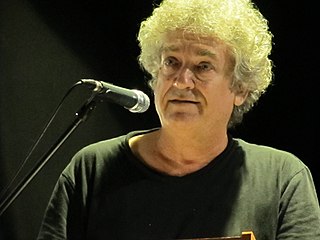 W
WAri Elon is an Israeli writer, a Talmud scholar and educator.
 W
WMichael Friedländer was an Orientalist and principal of Jews' College, London. He is best known for his English translation of Maimonides' Guide to the Perplexed, which was the most popular such translation until the more recent work of Shlomo Pines, and still remains in print.
 W
WMenachem Friedman was an Israeli Emeritus Professor of sociology at Bar Ilan University, Ramat-Gan. His expertise was religion and the confrontations between religious and secular Judaism in modern history. He also studied the modern process of Halachic decision making. Friedman was considered one of the leading researchers of Haredi Judaism.
 W
WSir Hermann Gollancz was a British rabbi and Hebrew scholar. Gollancz was the first Jew to earn a doctor of literature degree from London University and the first holder of the degree to be ordained as a rabbi. He was also the first British rabbi to be granted a knighthood, when he was knighted in 1923.
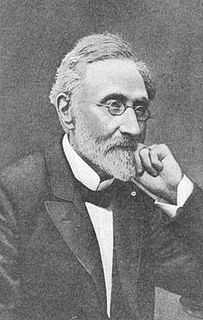 W
WHeinrich Graetz was amongst the first historians to write a comprehensive history of the Jewish people from a Jewish perspective.
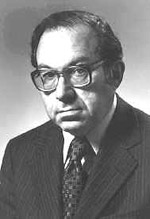 W
WRaul Hilberg was an Austrian-born Jewish-American political scientist and historian. He was widely considered to be the preeminent scholar on the Holocaust. Christopher R. Browning has called him the founding father of Holocaust Studies and his three-volume, 1,273-page magnum opus The Destruction of the European Jews is regarded as seminal for research into the Nazi Final Solution.
 W
WIggeret of Rabbi Sherira Gaon, also known as the Letter of Rav Sherira Gaon, and the Epistle of Rav Sherira Gaon, is a responsum penned in the late 10th century in the Pumbedita Academy by Sherira Gaon, the Chief Rabbi and scholar of Babylonian Jewry, to Rabbi Jacob ben Nissim of Kairouan, in which he methodologically details the development of rabbinic literature, bringing down a chronological list of the Sages of Israel from the time of the compilation of the Mishnah, to the subsequent rabbinic works, spanning the period of the Tannaim, Amoraim, Savoraim, and Geonim under the Babylonian Exilarchs, concluding with his own time. Therein, Sherira Gaon outlines the development of the Talmud, how it was used, its hermeneutic principles, and how its lessons are to be applied in daily life whenever one rabbinic source contradicts another rabbinic source. It is considered one of the classics in Jewish historiography.
 W
WAcademic-historical research into Jewish mysticism is a modern multi-discipline university branch of Jewish studies. It studies the texts and historical contexts of Judaic mysticism using objective historical-critical methods of Religious studies, such as Philology, History of ideas, Social history and Phenomenology. The historical development of Jewish mysticism under study covers the range of phases, forms and expressions, from early Rabbinic Merkabah mysticism, through Medieval Hasidei Ashkenaz and Classical Kabbalah, early-modern Safed Kabbalah and Sabbateanism, to modern Hasidism and 20th century expressions. It is often seen as a parallel field to academic research into rationalist Jewish philosophy, though some scholars contribute in both areas. In Israel both subjects, together with Ethical literature, share the umbrella department of Jewish thought.
 W
WJewish philosophy includes all philosophy carried out by Jews, or in relation to the religion of Judaism. Until modern Haskalah and Jewish emancipation, Jewish philosophy was preoccupied with attempts to reconcile coherent new ideas into the tradition of Rabbinic Judaism, thus organizing emergent ideas that are not necessarily Jewish into a uniquely Jewish scholastic framework and world-view. With their acceptance into modern society, Jews with secular educations embraced or developed entirely new philosophies to meet the demands of the world in which they now found themselves.
 W
WThe Herbert D. Katz Center for Advanced Judaic Studies at the University of Pennsylvania—commonly called the Katz Center—is a postdoctoral research center devoted to the study of Jewish history and civilization.
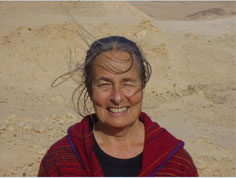 W
WJune Leavitt is an American-Israeli scholar of Franz Kafka and author of a number of books, both academic and literary, including The Mystical Life of Franz Kafka: Theosophy, Cabala and the Modern Spiritual Revival, and Esoteric Symbols: The Tarot in Yeats, Eliot and Kafka. Leavitt has published two novels, including The Flight to Seven Swan Bay, for young adults, and Falling Star, the latter of which has been translated into Hebrew. Fragments of her autobiographical work, which first appeared in US News and World Report, have been translated into Hebrew, French, and German.
 W
WIsrael Lewy was a German-Jewish scholar.
 W
WMiddle Eastern studies is a name given to a number of academic programs associated with the study of the history, culture, politics, economies, and geography of the Middle East, an area that is generally interpreted to cover a range of nations including Egypt, Iran, Iraq, Israel, Jordan, Lebanon, Oman, Palestine, Saudi Arabia, Syria, Turkey, and Yemen. It is considered a form of area studies, taking an overtly interdisciplinary approach to the study of a region. In this sense Middle Eastern studies is a far broader and less traditional field than classical Islamic studies.
 W
WGerhard "George" Lachmann Mosse was a German-born emigre from Nazi Germany who first went to Great Britain and then the United States. He was a professor of history at the University of Iowa, the University of Wisconsin–Madison, and the Hebrew University of Jerusalem. Best known for his studies of Nazism, he authored more than 25 books on topics as diverse as constitutional history, Protestant theology, and the history of masculinity. In 1966, he and Walter Laqueur founded The Journal of Contemporary History, which they co-edited.
 W
WThe Oxford Centre for Hebrew and Jewish Studies (OCHJS) is a Recognised Independent Centre of the University of Oxford, England. Its research fellows teach on a variety of undergraduate and master's degrees in Oriental studies, and it publishes the Journal of Jewish Studies.
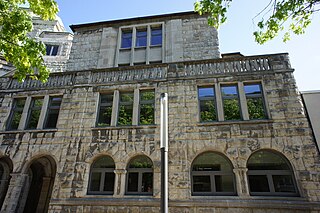 W
WThe Salomon Ludwig Steinheim Institute of German-Jewish Studies is a research institute of the University of Duisburg-Essen whose research focuses on the cultural and religious history as well as the history of literature and events of the Jewish community in German-speaking areas. The institute has made contributions in teaching in the field of Jewish Studies at the University of Duisburg-Essen. In 2003, the faculty was transferred to the Heinrich Heine University of Düsseldorf and cooperation with the institute has been maintained.
 W
WSefunot was a Hebrew-language academic journal, published annually, dealing with the study of Jewish communities in the East, from the end of the Middle Ages unto the present time. It was initiated by Meir Benayahu, and jointly published by the Ben Zvi Institute and the Hebrew University of Jerusalem. A total of 26 books have been published in 25 volumes. The first book was published in 1956 and the last in 2017. The appellative Sefunot was chosen for the Annual, as it has the distinct meaning of "those things concealed," an allusion to the obscure nature of these Jewish communities.
 W
WMarc B. Shapiro is a professor and the author of various books and articles on Jewish history, philosophy, theology, and rabbinic literature.
 W
WSholem Aleichem Amur State University, formerly Birobidzhan State Pedagogical Institute, is a university in Russia. This is the only university based in the Jewish Autonomous Oblast. It is named after Jewish-Russian author Sholem Aleichem.
 W
WTarbiẕ was a scientific quarterly of contemporary Jewish studies, Humanities and religion, published in Hebrew, by the Institute of Jewish Studies at the Hebrew University of Jerusalem. The journal was first published in the Autumn of 1929 and ended its publication in 2017. Among Hebrew journals, it is considered one of the most important journals in its field. Etymologically, the word "Tarbiz" means "place of dissemination of learning," particularly that related to an "academy," or "seat of learning."
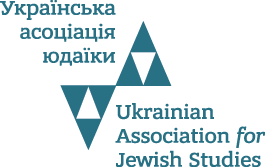 W
WThe Ukrainian Association for Jewish Studies (UAJS) is a non-profit academic and professional non-governmental organization that brings together Ukrainian scholars and students who work in the field of Jewish studies. The UAJS was established in 2015.